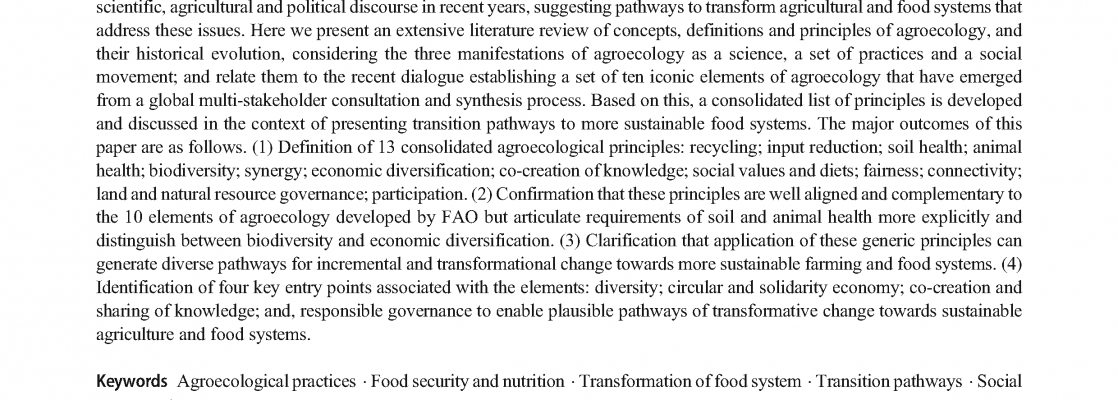There is consensus that the global food system is not delivering good nutrition for all and is causing environmental degradation and loss of biodiversity, such that a profound transformation is needed to meet the challenges of persistent malnutrition and rural poverty, aggravated by the growing consequences of climate change. Agroecological approaches have gained prominence in scientific, agricultural and political discourse in recent years, suggesting pathways to transform agricultural and food systems that address these issues.
This paper presents an extensive literature review of concepts, definitions and principles of agroecology, and their historical evolution, considering the three manifestations of agroecology as a science, a set of practices and a social movement; and relates them to the recent dialogue establishing a set of ten iconic elements of agroecology that have emerged from a global multi-stakeholder consultation and synthesis process. Based on this, a consolidated list of principles is developed and discussed in the context of presenting transition pathways to more sustainable food systems.
Author: Alexander Wezel, Barbara Gemmill Herren, Rachel Bezner Kerr, Edmundo Barrios, André Luiz Rodrigues Gonçalves and Fergus Sinclair
Publisher: Agronomy for Sustainable Development (ASD); French National Institute for Agriculture, Food and Environment (INRAE)
Language: English
Year: 2020
Ecosystem(s): Agricultural Land
Location(s): Global
Available downloads


